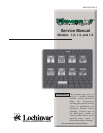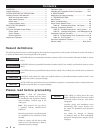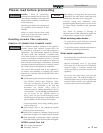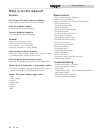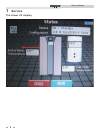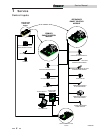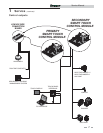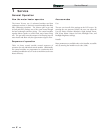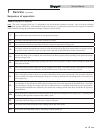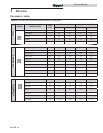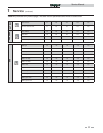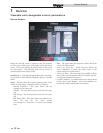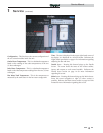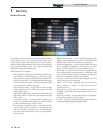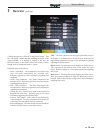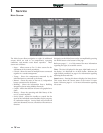
1 Service (continued)
Sequence of operation
Table 1A Sequence of operation
Note: This unit is equipped with two (2) independent, but synchronized combustion systems. One of the heat exchanger
combustion systems will fire first. If the demand cannot be met by one (1) combustion system the same sequence of operation
will be followed to bring the second heat exchanger combustion system online.
9
Service Manual
1.
Upon a call for heat, the control turns on the appropriate pumps.
2.
The control confirms that the flow switch contacts are closed.
3.
The control starts the blower and closes the louver contacts to begin the Pre-Purge cycle.
4.
The control confirms that the blower comes up to the desired speed, the flap valve opens, and the air pressure switch,
gas pressure switch (optional), louver proving switch (optional), and blocked drain switch contacts close.
5.
Once the Pre-Purge cycle is complete, the control lowers the blower speed, initiates sparking of the ignition electrode,
and opens the gas valve.
6.
After a short wait, the control stops sparking and checks for the presence of flame current through the spark and
flame sense electrodes.
7.
If the control does not detect flame current, the control will try again. If no flame current is detected on the second
try, the control will lockout indefinitely until the RESET button on the touch screen LCD is pressed.
8.
If the control detects flame current, the control will hold the blower speed constant for a few seconds to allow the
flame to stabilize, then begin modulating the firing rate in order to maintain the controlling sensor to the desired set
point temperature.
9.
If the first heat exchanger in the water heater is unable to maintain the desired set point temperature, the second
heat exchanger in the water heater will be started, using much of the same sequences as described above. Once both
heat exchangers are firing, the controls will work in synchronization to maintain the desired set point temperature.
If the heat load should decrease sufficiently, the second heat exchanger will be shut down, much like the sequences
described below.
10.
Once a call for heat is satisified, the control will turn off the gas valve and begin the Post-Purge cycle. The pumps that
are running will begin their respective Pump Delay cycles.
11.
At the end of the Post-Purge cycle, the louver contacts will open.
12.
The control verifies that the blower stops running and the flap valve closes.
13.
At the end of the Pump Delay cycle(s), the pump(s) will be turned off.



